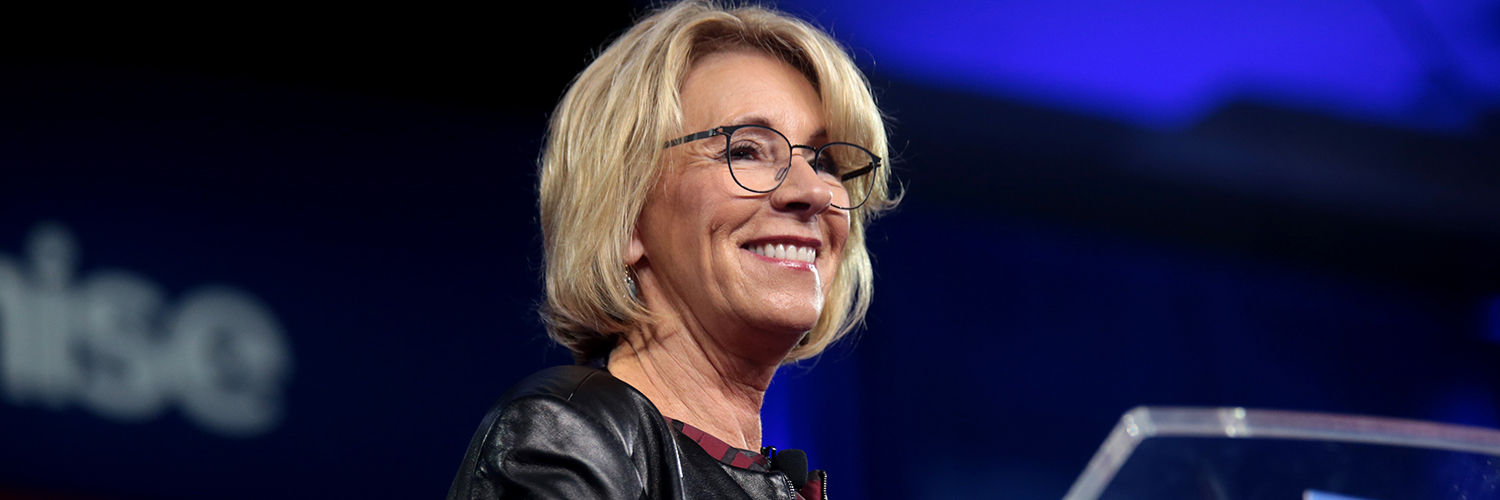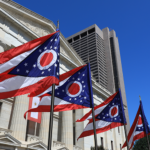Recent national headlines have trumpeted reporters’ impressions of unnamed sources’ impressions of White House officials’ impressions of Education Secretary Betsy DeVos’ comments in recent interviews.
“White House officials alarmed at education secretary’s ‘60 Minutes’ performance,” CNN, March 12, 2018.
From the article, however, we actually learn: “White House Press Secretary Sarah Sanders declined to weigh in on DeVos’ performance, saying school safety and other policies are the ‘focus of the president — not one or two interviews, but actual policy.’”
Where does the term “alarmed” come from? The article reports that unspecified individuals within the White House are “alarmed … according to two sources familiar with their reaction.”
The pastry chef, maybe?
To summarize: The story is about an impression of impressions about an interview. This flimsy analysis is all it takes to create an inflammatory headline, though. I miss news being about things that actually happen — not words.
I am very comfortable with criticism of the actions of this or any government administration, but I am tired of echo chambers about perceptions.
Ironically, the actions of this administration on education have almost entirely been about deregulation.
The Left has sought federal education deregulation since No Child Left Behind in 2001, and the Right has sought it since Ronald Reagan’s desire to abolish Jimmy Carter’s new “Department of Education” in 1981.
Secretary DeVos’ themes in the interviews recently continue the agency agenda of allowing local communities establish their own priorities, and most of us should applaud this departure from the previous administration, which sought to punish locals for failing to toe the federal line.
The U.S. Department of Education employs 3,860 full- or part time employees – only 6 percent of whom were identified as necessary to continue working during the recent government shutdown.
Nearly all of its work is related to college financial aid, assuring equal access to education and education data. Roughly 8 percent of local K-12 funds come from the federal government.
Despite the rather mundane work of the U.S. Department of Education, Secretary DeVos has been targeted for a smear campaign. The National Education Association and American Federation of Teachers actively demonize Ms. DeVos because of her belief in education options for families.
News outlets have been quick to report on Secretary DeVos in a sensational manner on topics that are not the focus of her agency. The marketing against her and media complicity to carry the messages is the very definition of media corruption.
In spite of allegations that Secretary DeVos is feverishly working to harm public education, here are the real policy actions of Secretary DeVos and the U.S. Department of Education:
- Created pilot program on more flexible use of federal funds
- Approved most of the states’ education accountability plans with greater local flexibility. The Obama Administration pressed states into compliance with agency preferences by offering permission to break federal law in return for yielding.
- Advocated new legislation to simplify federal financial aid
- Removed nearly 600 items of “regulatory guidance”
- Awarded grants to expand charter schools
- Gave flexibility to hurricane-impacted program participants
- Restored overarching rather than minute detailed regulations regarding campus sexual misconduct, and returned to the precedent that regulations will be imposed by legal process rather than letter
- Awarded grants to help 11,000 educators improve services to English learners
- Increased accountability for companies involved with Federal Student Aid
- Delayed regulations on higher education institutions
- Leading a Regulatory Reform Task Force to repeal, replace or modify unnecessary regulatory burdens
- Added flexibility to the federal Pell Grant program
- Commissioned regulatory reform related to “Borrowers Defense to Repayment” regulations
- Embraced flexibility for “Upward Bound” grant application
- Offered an education budget decentralizing education authority
- Gave flexibility to FAFSA filers
- Provided more flexibility for state Chief School Officers receiving federal K-12 funds
Flexibility and deregulation will be the legacy of Betsy DeVos’ Department of Education, and this should be covered by the media and applauded by both the Left and the Right.










